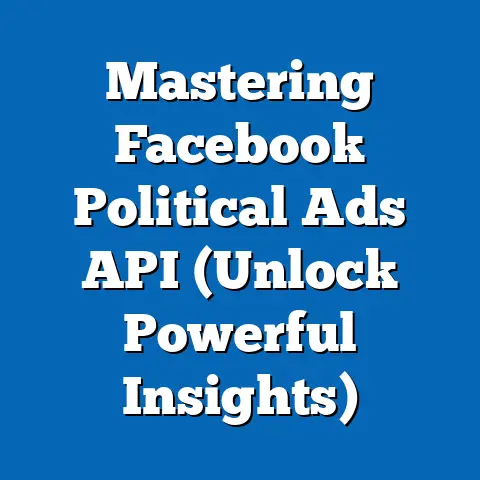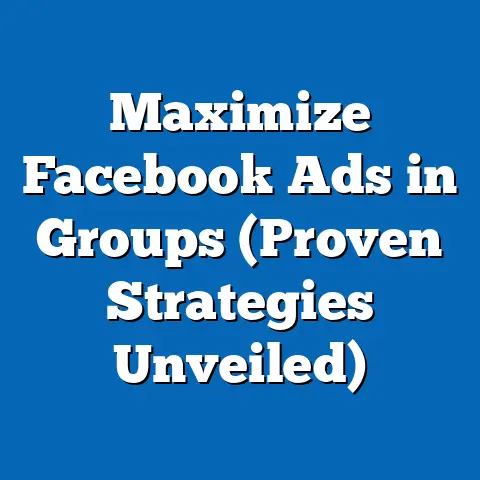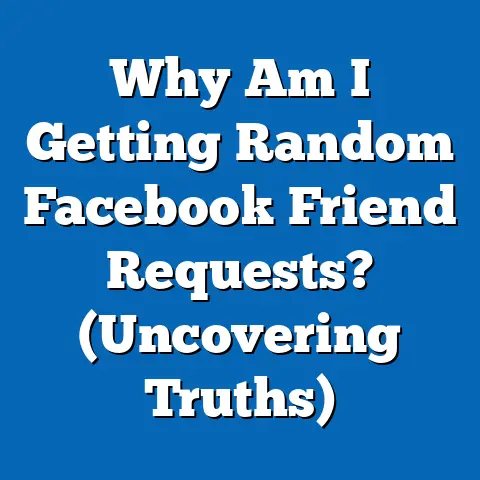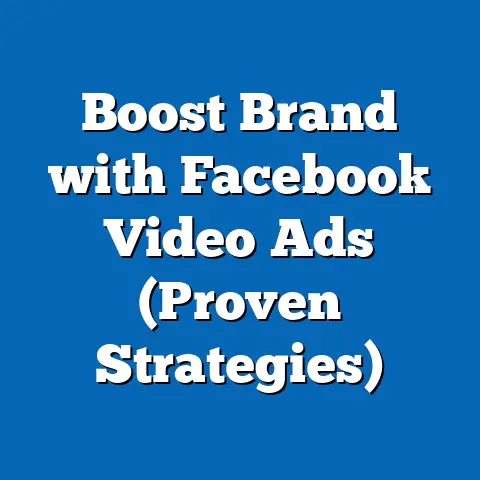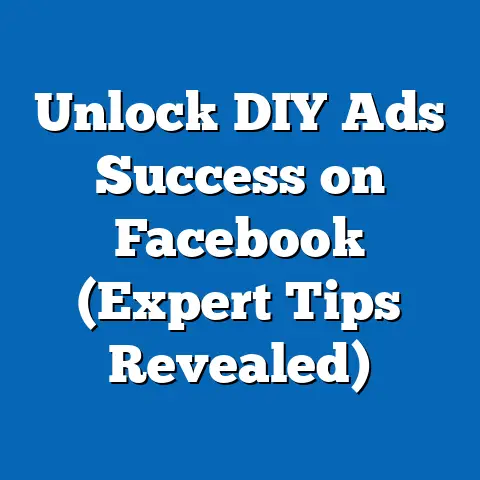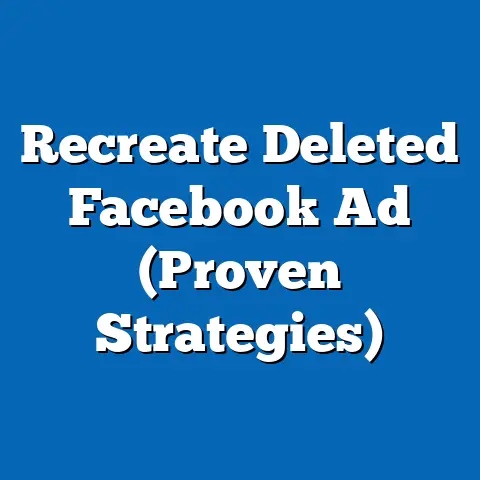Boosting Leads: Connect Facebook Ads to CRM (Game Changer)
I remember Sarah vividly.
She was a small business owner, passionate about her handcrafted jewelry, but her marketing efforts were… well, let’s just say they weren’t as polished as her creations.
She was pouring money into Facebook Ads, hoping to attract new customers, but her leads were scattered like beads on a workshop floor.
She’d spend hours manually copying lead information, sending generic emails, and often missing crucial follow-up opportunities.
Her business was stagnating, and her return on investment was barely a blip.
It was frustrating to watch her dedication yield so little.
Then, one day, she stumbled upon a webinar about connecting Facebook Ads to a Customer Relationship Management (CRM) system.
The concept seemed complex, even a little intimidating.
But the potential – a streamlined, automated lead generation process – was too alluring to ignore.
She decided to take the leap, and it completely revolutionized her business.
She went from struggling to manage leads on spreadsheets to having a well-oiled machine that nurtured prospects and converted them into loyal customers.
Her story, and countless others like hers, proves that connecting Facebook Ads to a CRM is not just a nice-to-have; it’s a game changer for businesses looking to boost their lead generation efforts.
In this guide, I’ll walk you through everything you need to know to make this powerful integration work for you.
Understanding the Power of Facebook Ads
Facebook Ads, when wielded correctly, are a formidable weapon in any marketer’s arsenal.
Think about it: Facebook boasts billions of active users, offering an unparalleled reach that can target specific demographics, interests, and behaviors.
It’s like having a laser-guided targeting system for your marketing messages.
One of the most compelling aspects of Facebook Ads is its sophisticated audience targeting.
I’ve seen campaigns that target everything from dog owners in a specific zip code to people interested in artisanal cheese.
This granular level of targeting allows you to focus your ad spend on the people most likely to convert into customers.
Then there’s the versatility of ad formats.
Whether you’re looking to showcase your product with a carousel ad, tell a compelling story with a video ad, or capture leads directly with a lead ad, Facebook offers a format to suit every objective.
I’ve personally found that video ads, when done right, are incredibly effective at capturing attention and driving engagement.
And don’t underestimate the sheer reach of Facebook.
According to Statista, Facebook had nearly 3 billion monthly active users as of early 2024.
That’s a massive pool of potential customers just waiting to be discovered.
For example, I worked with a local bakery that was struggling to attract new customers.
We launched a Facebook Ad campaign targeting people in their neighborhood who had expressed interest in baking and desserts.
The campaign featured mouthwatering photos of their pastries and offered a special discount for first-time customers.
Within weeks, they saw a significant increase in foot traffic and online orders.
This is just one small example of the power of Facebook Ads when combined with strategic targeting and compelling creative.
Key Takeaway: Facebook Ads offer unparalleled reach, sophisticated targeting options, and versatile ad formats, making them a powerful tool for lead generation.
What is CRM and Why It Matters?
Now, let’s talk about CRM.
Customer Relationship Management (CRM) is a strategy and technology for managing all your company’s relationships and interactions with customers and potential customers.
It’s more than just a software; it’s a philosophy that puts the customer at the center of your business.
Think of your CRM as the central nervous system of your business.
It’s where all your customer data lives – contact information, purchase history, interactions, and more.
This centralized data allows you to gain a 360-degree view of each customer, enabling you to personalize your interactions and provide better service.
A good CRM helps you streamline processes, improve customer service, and ultimately, enhance profitability.
It automates tasks like data entry, follow-up reminders, and email marketing, freeing up your time to focus on building relationships with your customers.
For instance, Salesforce is a popular choice for larger enterprises, offering a comprehensive suite of features and integrations.
HubSpot is a great option for small to medium-sized businesses, with a user-friendly interface and a robust marketing automation platform.
Zoho CRM is another affordable and feature-rich option that’s popular among startups.
I’ve seen firsthand how a CRM can transform a business.
I worked with a small e-commerce company that was struggling to keep track of their customers and their orders.
They were using spreadsheets and email to manage everything, which was incredibly inefficient and prone to errors.
After implementing a CRM, they were able to automate their order processing, track customer interactions, and personalize their marketing messages.
As a result, they saw a significant increase in customer satisfaction and repeat purchases.
Key Takeaway: A CRM is a crucial tool for managing customer relationships, streamlining processes, and improving profitability.
Choosing the right CRM for your business is essential for maximizing its benefits.
The Game-Changing Integration
This is where the magic happens: connecting Facebook Ads to your CRM.
Imagine a world where every lead generated from your Facebook Ads automatically flows into your CRM, ready to be nurtured and converted into a paying customer.
No more manual data entry, no more missed follow-up opportunities.
That’s the power of this integration.
The mechanics are relatively straightforward.
When you run a Facebook Lead Ad, you’re essentially creating a form that users can fill out directly within the Facebook platform.
This form can capture information like name, email address, phone number, and any other data you need to qualify your leads.
The integration then uses APIs (Application Programming Interfaces) to connect Facebook Ads to your CRM.
APIs act as bridges, allowing data to flow seamlessly between the two platforms.
When someone fills out your Facebook Lead Ad, the data is automatically transferred to your CRM, creating a new lead record.
This automation offers several key benefits:
- Automated Lead Capture: No more manual data entry.
Leads are automatically captured and added to your CRM. - Real-Time Updates: You get immediate notifications when a new lead is generated, allowing you to respond quickly.
- Improved Follow-Up Processes: Your CRM can automatically trigger follow-up emails, tasks, and reminders, ensuring that no lead falls through the cracks.
Remember Sarah, the jewelry maker?
After integrating Facebook Ads with her CRM (HubSpot, in her case), she saw a dramatic improvement in her lead response time.
Instead of manually copying lead information and sending generic emails days later, her CRM automatically sent personalized welcome emails within minutes of a lead being generated.
This immediate response made her business look more professional and increased the likelihood of converting those leads into customers.
She also used her CRM to segment her leads based on their interests (e.g., earrings, necklaces, bracelets).
This allowed her to send targeted marketing messages that resonated with each segment, further boosting her conversion rates.
The integration also provided her with valuable data insights, such as which ads were generating the most qualified leads and which segments were most responsive to her marketing efforts.
This data allowed her to optimize her campaigns and maximize her ROI.
Key Takeaway: Connecting Facebook Ads to your CRM automates lead capture, enables real-time updates, and improves follow-up processes, leading to higher conversion rates and a better ROI.
Step-by-Step Guide to Connecting Facebook Ads to CRM
Now, let’s get into the practical steps of connecting Facebook Ads to your CRM.
While the specific steps may vary slightly depending on the CRM you’re using, the general process is similar.
1. Choosing the Right CRM
Before you even think about connecting Facebook Ads, you need to make sure you have a CRM that integrates well with the platform.
Some popular options include:
- HubSpot: A great all-in-one platform with a free CRM and robust marketing automation features.
- Salesforce: The industry leader, offering a comprehensive suite of features for sales, service, and marketing.
- Zoho CRM: An affordable and feature-rich option that’s popular among small businesses.
- Pipedrive: A sales-focused CRM that’s known for its user-friendly interface.
When choosing a CRM, consider your business needs, budget, and technical expertise.
Look for a CRM that offers a seamless integration with Facebook Ads and provides the features you need to manage and nurture your leads effectively.
2. Setting Up Lead Ads
Next, you need to create Facebook Lead Ads that capture the information you need from your prospects.
Here are some tips for creating effective Lead Ads:
- Target the Right Audience: Use Facebook’s targeting options to reach the people most likely to be interested in your product or service.
- Craft Compelling Ad Copy: Write clear, concise, and engaging ad copy that highlights the benefits of your offer.
- Design Eye-Catching Visuals: Use high-quality images or videos that capture attention and convey your message effectively.
- Keep the Form Short and Sweet: Only ask for the information you absolutely need.
The more fields you require, the lower your conversion rate will be. - Offer a Clear Value Proposition: Tell people what they’ll get in exchange for providing their information (e.g., a free ebook, a discount code, a consultation).
When creating your Lead Ad form, make sure to include fields that match the fields in your CRM.
This will ensure that the data is transferred correctly.
3. Integration Process
Now, let’s get to the actual integration process.
Here’s a general overview of the steps involved:
- Log into your Facebook Ads Manager account.
- Navigate to the ad set for the Lead Ad you want to connect to your CRM.
- Look for the “Lead Generation” section.
- You should see an option to connect to your CRM.
- Click on the “Connect” button and follow the on-screen instructions.
The exact steps may vary depending on the CRM you’re using.
Some CRMs offer native integrations with Facebook Ads, while others require you to use a third-party integration tool like Zapier or Integromat.
If you’re using a third-party integration tool, you’ll need to create a “zap” or “scenario” that connects Facebook Lead Ads to your CRM.
This typically involves selecting Facebook Lead Ads as the trigger and your CRM as the action.
You’ll then need to map the fields from your Lead Ad form to the corresponding fields in your CRM.
4. Testing the Integration
Once you’ve connected Facebook Ads to your CRM, it’s crucial to test the integration to make sure everything is working correctly.
Here’s how:
- Fill out your Lead Ad form yourself.
- Check your CRM to see if the lead data has been transferred correctly.
- Verify that all the fields are mapped correctly and that the data is accurate.
If you encounter any issues, double-check your integration settings and make sure you’ve followed all the steps correctly.
If you’re still having trouble, consult the documentation for your CRM or integration tool, or reach out to their support team for assistance.
5. Monitoring and Optimizing
After you’ve successfully integrated Facebook Ads with your CRM, it’s important to monitor your performance and optimize your campaigns based on the data you’re collecting.
Here are some metrics to track:
- Lead Volume: How many leads are you generating from your Facebook Ads?
- Lead Quality: How qualified are the leads you’re generating?
Are they a good fit for your product or service? - Conversion Rate: What percentage of your leads are converting into customers?
- Cost Per Lead: How much are you spending to generate each lead?
- Return on Ad Spend (ROAS): How much revenue are you generating for every dollar you spend on Facebook Ads?
Use this data to identify areas for improvement.
For example, if you’re generating a lot of leads but your conversion rate is low, you may need to improve your lead nurturing process.
Or, if your cost per lead is too high, you may need to refine your targeting or ad creative.
Key Takeaway: Connecting Facebook Ads to your CRM involves choosing the right CRM, setting up effective Lead Ads, integrating the two platforms, testing the integration, and monitoring and optimizing your performance.
Real-Life Success Stories
Let’s take a look at some real-life examples of businesses that have successfully integrated Facebook Ads with their CRM:
- A Real Estate Agency: A real estate agency used Facebook Lead Ads to generate leads for their open houses.
By connecting their Lead Ads to their CRM (Salesforce), they were able to automatically follow up with leads and schedule appointments.
As a result, they saw a significant increase in attendance at their open houses and a boost in their sales. - A Software Company: A software company used Facebook Lead Ads to generate leads for their free trial.
By connecting their Lead Ads to their CRM (HubSpot), they were able to automatically nurture leads with targeted email campaigns.
This resulted in a higher conversion rate from free trial users to paying customers. - A Local Restaurant: A local restaurant used Facebook Lead Ads to generate leads for their loyalty program.
By connecting their Lead Ads to their CRM (Zoho CRM), they were able to automatically send welcome emails and exclusive offers to new loyalty program members.
This helped them build a loyal customer base and increase repeat business.
These are just a few examples of the many ways businesses can use Facebook Ads and CRM integration to boost their lead generation efforts.
The key is to identify your specific goals and challenges and then develop a strategy that leverages the power of both platforms.
Key Takeaway: Numerous businesses across various industries have successfully integrated Facebook Ads with their CRM to achieve significant improvements in lead generation, conversion rates, and customer loyalty.
Conclusion
Connecting Facebook Ads to a CRM is more than just a technical integration; it’s a strategic move that can transform your lead generation efforts and drive significant business growth.
By automating lead capture, enabling real-time updates, and improving follow-up processes, this integration allows you to nurture leads more effectively and convert them into loyal customers.
Remember Sarah, the jewelry maker?
She took a leap of faith and embraced this innovative approach, and it completely revolutionized her business.
You can do the same.
Take action today to connect your Facebook Ads to your CRM and unlock the full potential of your advertising campaigns.
The possibilities are endless, and the rewards are well worth the effort.
Don’t let your leads scatter; connect them, nurture them, and watch your business flourish.

